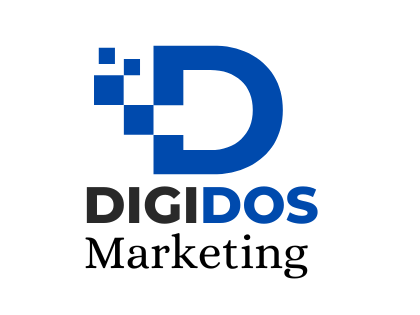In today’s fast-paced digital landscape, businesses are constantly seeking innovative ways to connect with their audience and drive growth. Enter digital marketing – a dynamic realm that encompasses a plethora of strategies to effectively promote products and services online. In this article, we’ll explore key digital marketing strategies that can help businesses navigate this evolving landscape and achieve success.
- Content Marketing: Crafting Compelling Narratives
Content is the backbone of digital marketing. Compelling and valuable content not only engages your target audience but also positions your brand as an authority in your industry. Start by understanding your audience’s pain points and interests, then create content that addresses these needs. Whether it’s blog posts, videos, infographics, or eBooks, quality content is the cornerstone of your digital marketing strategy.
- Search Engine Optimization (SEO): Mastering Online Discoverability
In the vast expanse of the internet, being found by potential customers is crucial. This is where SEO comes into play. Research relevant keywords related to your industry and integrate them naturally into your content. Technical SEO optimizations, such as optimizing meta tags, creating a sitemap, and improving site speed, contribute to higher search engine rankings. The goal is to ensure your business is visible when users search for relevant terms.
- Social Media Marketing: Building Relationships Digitally
Social media has transformed the way businesses connect with their audience. Each platform offers unique opportunities to engage, share, and interact with potential customers. Identify the platforms where your audience hangs out and tailor your content to each platform’s strengths. Regular posting, interacting with followers, and leveraging hashtags can expand your reach and foster a loyal online community.
- Email Marketing: Nurturing Relationships
Contrary to popular belief, email marketing is far from obsolete. It remains one of the most effective ways to nurture leads and maintain customer relationships. Craft personalized and relevant email campaigns that provide value to your subscribers. Segmentation and automation tools can help tailor messages to different segments of your audience, boosting open rates and conversions.
- Pay-Per-Click (PPC) Advertising: Targeted Campaigns
PPC advertising allows you to place your ads in front of a highly targeted audience. Platforms like Google Ads and social media platforms enable you to create ads that appear when users search for specific keywords or meet certain demographic criteria. Effective ad copy, landing pages, and tracking mechanisms are essential for optimizing your campaigns and maximizing ROI.
- Influencer Marketing: Leveraging Industry Leaders
Influencer marketing leverages the credibility and reach of individuals who have a strong online presence in your industry. Partnering with relevant influencers can help you tap into their follower base and build trust with a wider audience. However, authenticity is key – choose influencers whose values align with your brand’s message for genuine and effective collaborations.
- Analytics and Data Insights: Informed Decision-Making
Digital marketing provides a wealth of data that can inform your strategy. Use tools like Google Analytics to track website traffic, user behavior, and conversion rates. This data empowers you to refine your approach, focusing on what works and making informed decisions for future campaigns.
- Mobile Optimization: Capturing the Mobile Audience
With the majority of internet users accessing content via mobile devices, optimizing your digital marketing efforts for mobile is non-negotiable. Ensure your website is responsive and offers a seamless browsing experience across different devices.
- Video Marketing: Captivating Visual Stories
Video content continues to gain traction across digital platforms. Create engaging and informative videos that resonate with your audience. Whether it’s explainer videos, behind-the-scenes glimpses, or customer testimonials, video content can increase engagement and shareability.
- Continuous Learning and Adaptation
The digital marketing landscape is ever-changing. Stay up-to-date with industry trends, algorithm updates, and emerging technologies. A willingness to learn and adapt is essential for staying ahead of the curve and maintaining a competitive edge.
In conclusion, digital marketing is a multifaceted endeavor that demands creativity, strategic thinking, and adaptability. By leveraging a combination of content marketing, SEO, social media, email campaigns, PPC advertising, influencer collaborations, analytics, and more, businesses can create a robust digital presence that connects them with their target audience and drives tangible results.
Top Digital Marketing Strategies for Growing Your Business Online
In the fast-paced digital landscape, effective marketing strategies are essential for businesses to stand out, connect with their target audience, and achieve growth. Whether you’re a startup or an established brand, implementing the right digital marketing strategies can make a significant impact on your online presence and success. In this article, we’ll explore some of the top digital marketing strategies you should consider to take your business to the next level.
1. Content Marketing: Creating Valuable Connections
Content marketing remains a cornerstone of successful digital strategies. By producing high-quality, informative content relevant to your industry, you can position your brand as an authoritative source and build trust with your audience. This could include blog posts, articles, videos, infographics, and more. Remember, valuable content attracts organic traffic and fosters engagement.
2. Search Engine Optimization (SEO): Boosting Visibility
SEO is vital for getting your content and website noticed by search engines and potential customers. Conduct thorough keyword research to identify terms your target audience is searching for. Optimize your website’s on-page elements like meta tags, headings, and content structure. Quality backlinks from reputable websites also play a role in improving your site’s search engine rankings.
3. Social Media Marketing: Engaging with Your Audience
Social media platforms offer an incredible opportunity to connect with your audience on a personal level. Develop a social media strategy that aligns with your brand’s voice and goals. Regularly post engaging content, interact with followers, and utilize paid advertising to expand your reach. Each platform caters to a specific audience, so choose the ones that best suit your business.
4. Pay-Per-Click (PPC) Advertising: Driving Targeted Traffic
PPC advertising allows you to display ads to users based on their search queries or online behavior. Platforms like Google Ads and social media advertising networks offer robust targeting options. With PPC, you pay only when a user clicks on your ad, making it a cost-effective way to drive targeted traffic to your website.
5. Email Marketing: Nurturing Relationships
Email marketing remains a powerful tool for nurturing customer relationships and driving conversions. Build an email list by offering valuable incentives such as eBooks, discounts, or exclusive content. Segment your list to send targeted messages that cater to specific interests or behaviors. Personalized and relevant emails can boost open rates and engagement.
6. Influencer Marketing: Leveraging Authority
Influencers hold sway over niche audiences and can help you reach potential customers authentically. Partner with influencers who align with your brand values and target audience. Their endorsement can lend credibility and introduce your products or services to a broader audience.
7. Video Marketing: Captivating Audiences
Video content has exploded in popularity, and platforms like YouTube and TikTok have become significant marketing channels. Create engaging and informative videos that showcase your products, share insights, or tell your brand story. Videos are highly shareable and can enhance your online presence.
8. Mobile Optimization: Embracing Mobile Users
With mobile devices driving a significant portion of online traffic, ensuring your website and content are mobile-friendly is crucial. Implement responsive design, fast-loading pages, and intuitive navigation for a seamless mobile user experience.
9. Analytics and Data Analysis: Informed Decision-Making
Regularly monitor your digital marketing efforts using analytics tools like Google Analytics. Track key metrics such as website traffic, conversion rates, and engagement levels. Analyzing data helps you understand what’s working, what’s not, and where you can optimize your strategies.
10. Continuous Learning and Adaptation: Staying Ahead
The digital marketing landscape evolves rapidly. Stay informed about the latest trends, algorithm changes, and emerging technologies. Adapt your strategies to incorporate new platforms, formats, or techniques to maintain your competitive edge.

